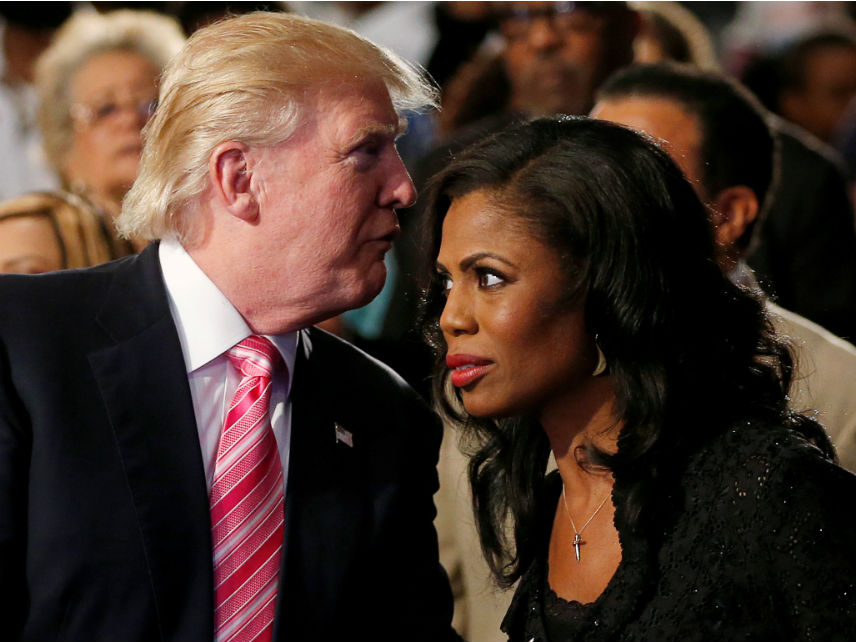Are Omarosa's White House Recordings Even Legal?
The answer is not likely to please President Trump.

Drama on this season of the White House has doubled in size thanks to revelations from Omarosa Manigault Newman, former director of communications for the Office of Public Liaison and star of President Trump's Celebrity Apprentice. After finding herself fired by Chief of Staff John Kelly in December, Manigault Newman exacted her revenge on the Trump administration with damning revelations about the administration in her new tell-all, UNHINGED. But her use of audio recordings in the book have raised legal questions.
Manigault Newman claimed that she recorded conversations in the White House, even a few with the president. Armed with the recordings, she said she had proof that Trump used the n-word on the The Apprentice, despite Trump's numerous proclamations that he is the "least racist person" one could ever meet.
On Tuesday, CBS played audio of high-profile Trump campaign staffers, like former spokeswoman Katrina Pierson, figuring out ways to spin the potential release of a recording that possibly features the president using the racial slur. In one recording, Pierson allegedly says, "He said it. No he said it. He's embarrassed."
POTUS says former White House staffer @Omarosa lied when she called him a racist who has said the N-word on tape. But a new recording, obtained by @CBSNews overnight, seems to back up Omarosa's story that several Trump advisers discussed an alleged tape during the 2016 campaign. pic.twitter.com/tV3R6P2TvE
— CBS This Morning (@CBSThisMorning) August 14, 2018
As the public reacts to the news of the potential tape, questions of the legality of Manigault Newman's recording loom. As The Daily Beast reported, the White House conversations Manigault Newman claims to have are conversations that include herself. This small detail is important when taking into account wiretapping law in the District of Columbia.
According to D.C. Code § 23-542, D.C. is a one-party consent state. This means that only one person in a conversation needs to consent to being recorded—the participant can be the recorder or can give permission to another person to record. If Manigault Newman was, in fact, part of the conversations she recorded, she would be well within the confines of the law. If for some reason Manigault Newman recorded conversations that she was not part of without consent from those involved, she would be in violation of the law.
As details of the latest White House scandal come out, the Trump campaign has explored other legal actions to take against Manigault Newman. Earlier, she claimed to have refused $15,000 in hush money from the campaign. Records from the campaign reportedly confirmed that other former staffers were offered the same amount of money in exchange for their silence. Whether or not she took the money, the Trump campaign announced on Tuesday that it would be taking her to court for breaching a non-disclosure clause in the campaign contract she signed in 2016.
Actor Tom Arnold once said that he was in possession of a tape on which Trump said "every bad thing ever, every offensive, racist thing ever." He said the comments were made during outtakes of The Apprentice and included him "saying the N-word, saying the C-word, calling his son a retard, just being so mean to his own children."


Show Comments (135)